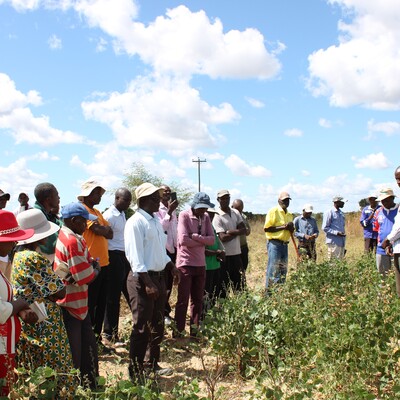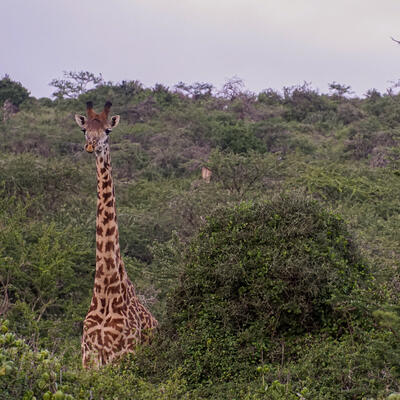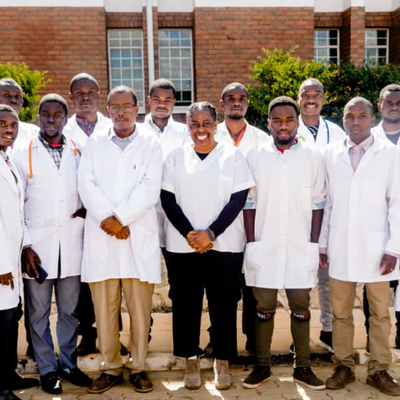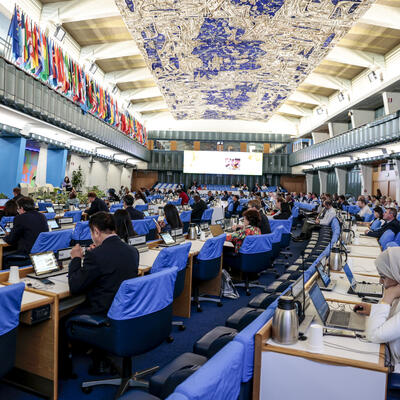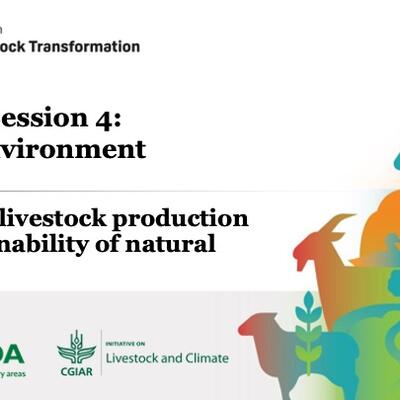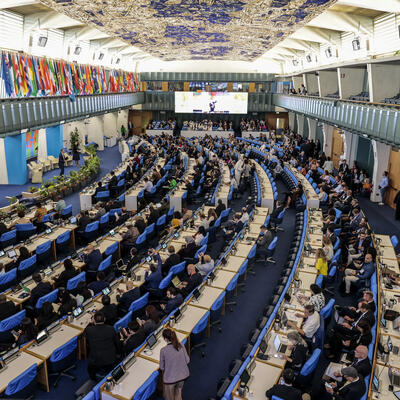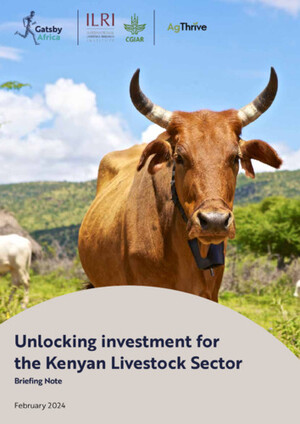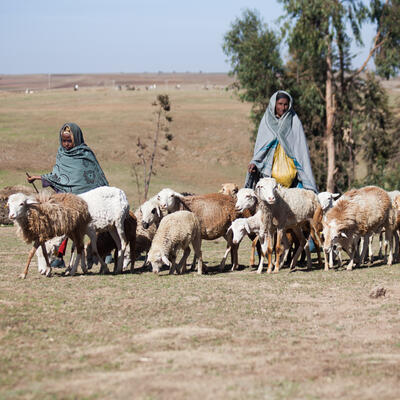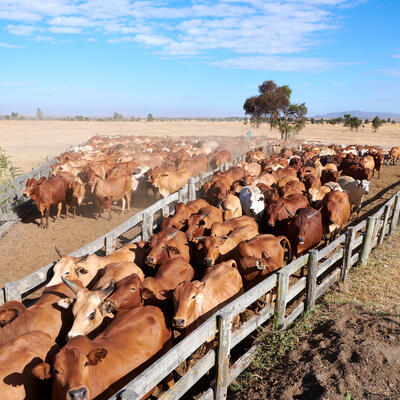
A resilient community of practice to improve collaboration in Mali
A groundbreaking initiative for enhancing community and ecosystem resilience is taking shape in Mali's central and northern regions. In the ongoing endeavour of the Mali Resilience Challenge Fund program, funded by the United States Agency for International Development (USAID), actors within the development, humanitarian, and peace (HDP) nexus in the regions have come together to establish a Resilience Community of Practice (RCoP).
The initiative seeks to foster improved coordination and collaboration among stakeholders within the HDP nexus, striving to save lives and improve people's livelihood. The RCoP perfectly aligns with the specific objective of USAID Mali's new Country Development and Cooperation Strategy and aims to facilitate collaboration between USAID-funded activities and other donors in the Mali Resilience Focus Zone. It creates a framework for knowledge and information exchange, fosters mutual learning, promotes the application and scaling-up of innovations and good practices identified within the community, and periodically informs USAID and all other stakeholders of progress in building resilience.
It is worth emphasizing that a community of practice is a group of people or structures sharing common problems or interests, who come together to explore working methods, identify common solutions, and exchange best practices and ideas. It is based on three structural components: the domain, the community, and the practice.
The RCoP was officially launched on Tuesday 7 May 2024 in Bamako, attracting 40 participants, representing over 20 organizations. Matthew Udziela, the deputy director of the Bureau of Agriculture and Economic Growth graced the occasion, underscoring USAID’s commitment towards fostering resilience and sustainable development within Mali's dynamic landscape.
In his opening remarks, Udziela emphasised the need for HDP Nexus actors to join forces to better respond to the growing needs of communities facing multidimensional risks.
“This Community of Practice is envisioned as a crucible for mutual learning among diverse partners. Yet, beyond mere learning, it must emerge as an engine propelling the generation and application of knowledge, for it is upon these twin pillars that the edifice of our civilization stands,’ stated Udziela, urging the participants to fully embrace and actively engage in the activities of the RCoP.
Abdou Fall, the Resilience Challenge Fund chief of party, underscored the importance of strengthening the resilience of communities and ecosystems against both internal and external shocks and stresses. This involves both empowering communities and facilitating collaboration between the various sectors of the HDP Nexus.
The launch enabled participants to validate proposals on the context, challenges, mission, objectives, functions, and activities, monitoring, and evaluation of RCoP, to analyse the challenges linked to their implementation, and to assess their applicability in the specific context of Mali. It was also an opportunity for the participants to recommend concrete suggestions for overcoming these challenges and improving the implementation of the initiative, underlining the importance of collaboration between the humanitarian, development, and peace sectors. The participants also explored opportunities for layering, sequencing, and integrating interventions, particularly for creating assets for displaced people and their hosts, RCoP monitoring and evaluation with validation of relevant indicators and clarification of members' roles and responsibilities in monitoring and evaluation. These efforts aim to ensure effective coordination and continuous improvement of resilience initiatives in the region.
George Wamwere-Njoroge, a consultant with ILRI, in an online presentation shared his experience of the Resilience Learning Activity (RLA) funded by USAID Mission in Kenya and East Africa and implemented by ACDI/VOCA. He shared information on the Partnership for Resilience and Economic Growth (PREG) in Kenya, the Government of Kenya's Ending Drought Emergencies Framework and the Third Medium Term Plan, the operational structures and growth path of RLA, progress catalysts and results, and successful examples of PREG collaboration activities supporting county governments.
The USAID Mali Resilience Challenge Fund Program (USAID MRCFP) is a four-year initiative designed to build the capacity of communities and ecosystems to withstand and recover from both internal and external challenges. By promoting community empowerment and facilitating collaboration among various sectors within the HDP Nexus, its overarching objective is to enable communities to build their absorptive, adaptive, and transformative capacities in the face of shocks, leading to their enhanced resilience and sustainable development. The activity is implemented by ILRI, in partnership with the Association Malienne d’Eveil pour le Développement Durable (AMEDD), the Association Malienne pour la Survie au Sahel (AMSS), the Association pour la Promotion du Développement Rural au Sahel (APROMORS), Near East Foundation, Sahel Eco, and Tassaght and CGIAR research centres including the International Crops Research Institute for the Semi-Arid Tropics (ICRISAT), the Center for International Forestry Research and World Agroforestry (CIFOR-ICRAF), the International Institute of Tropical Agriculture (IITA), and the World Vegetable Center.
For more information on the USAID Mali Resilience Challenge Fund Program, please reach out to Abdou Fall, Chief of Party, at: a.fall@cgiar.org.
You may also like
Related Publications
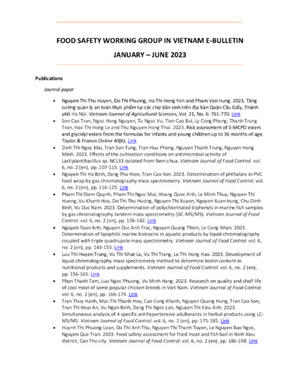
Food Safety Technical Working Group in Vietnam E-bulletin, July-December 2024
- Food Safety Technical Working Group in Vietnam

Context Matters: Tackling Methane in Livestock Systems for a Sustainable Future
- Food Systems for the Future (FSF)
- Environmental Defense Fund
- International Livestock Research Institute

One Health scientific conference: International practices and lessons learned for Vietnam
- Vietnam One Health Partnership
- International Livestock Research Institute
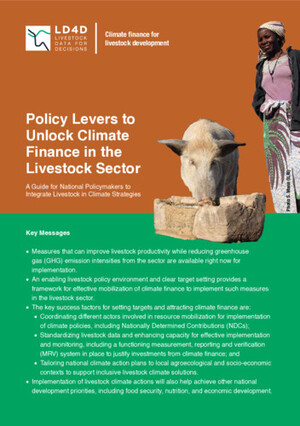
Policy levers to unlock climate finance in the livestock sector: A guide for national policymakers to integrate livestock in climate strategies
- Alemayehu, Sintayehu
- Cramer, Laura
- Gonzalez Quintero, Ricardo
- Kimoro, Bernard
- Kohler, Gregory
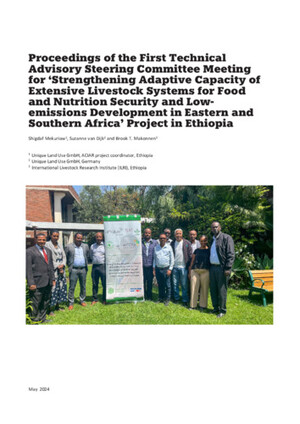
Proceedings of the First Technical Advisory Steering Committee Meeting for ‘Strengthening Adaptive Capacity of Extensive Livestock Systems for Food and Nutrition Security and Low-emissions Development in Eastern and Southern Africa’ Project in Ethiopia
- Mekuriaw, Shigdaf
- Dijk, Suzanne van
- Makonnen, Brook T.





